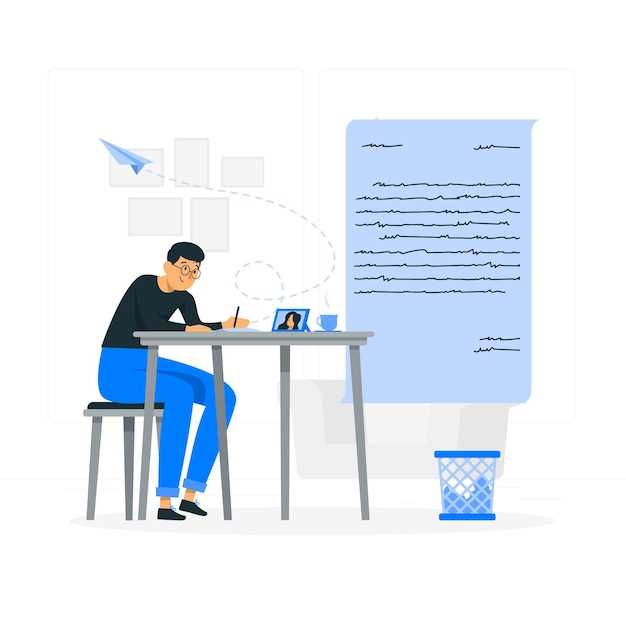
Begin your essay with a clear thesis that highlights your main idea. This approach immediately focuses your writing and keeps readers engaged. For example, if your topic is climate change, state how it impacts agriculture in specific regions. Precision in your thesis sets the tone for a well-structured essay.
Use credible sources to support your points. Reliable studies, expert interviews, and verified statistics add depth to your argument. Avoid vague references or outdated data. A single strong source often outweighs three weaker ones. This ensures your essay remains informative and persuasive.
Organize your content into clear sections. Start with an introduction, followed by body paragraphs that explore different aspects of your topic, and conclude with a summary. Each paragraph should focus on one idea, making your essay easy to follow. Logical flow keeps readers interested and helps them understand your message.
Edit rigorously after writing. Check for grammar, clarity, and consistency. Remove repetitive phrases and ensure every sentence adds value. Reading your essay aloud can help identify awkward phrasing or unclear ideas. Revision transforms a good essay into an exceptional one.
Seek feedback from peers or mentors. Fresh perspectives often reveal areas for improvement. If you’re unsure where to start, expert guidance can provide tailored advice and practical tips to elevate your writing. A strong support system makes the process smoother and more rewarding.
Choosing the Right Topic for Your Informative Essay

Pick a subject that genuinely interests you. Writing about something you enjoy keeps you motivated and makes the process smoother. If you’re passionate about the topic, your enthusiasm will naturally reflect in your work.
Focus on a specific angle rather than a broad theme. For example, instead of writing about “Climate Change,” narrow it down to “The Impact of Climate Change on Coastal Cities.” This approach helps you stay focused and provides depth to your essay.
Ensure the topic has enough credible sources available. Research beforehand to confirm you can find reliable information, such as academic articles, books, or expert interviews. A well-supported essay is more persuasive and informative.
Consider your audience’s interests and knowledge level. Choose a topic that will engage them and provide value. If your readers are beginners, avoid overly complex subjects that might confuse them.
Test your topic by drafting a brief outline. If you can easily identify key points and structure, it’s a good fit. If not, refine your idea until it feels manageable and clear.
Structuring Your Essay for Maximum Clarity
Begin with a clear thesis statement that outlines your main argument or purpose. Place it at the end of your introduction to guide the reader through your essay. Use concise language to ensure your point is easily understood.
Organize your body paragraphs around one main idea each. Start with a topic sentence that directly supports your thesis. Follow with evidence, examples, or analysis to strengthen your argument. Keep paragraphs focused and avoid straying into unrelated points.
Use transitions between paragraphs to maintain a logical flow. Words like “however,” “additionally,” or “for instance” help connect ideas smoothly. This ensures your reader can follow your reasoning without confusion.
Conclude by summarizing your key points and restating your thesis in a fresh way. Avoid introducing new information here. Instead, leave the reader with a clear understanding of your argument and its significance.
Edit for clarity by removing unnecessary words or repetitive phrases. Read your essay aloud to catch awkward phrasing or unclear sentences. A well-structured essay is easy to follow and leaves a lasting impression.
Incorporating Reliable Sources and Evidence

Choose sources from reputable platforms like academic journals, government websites, and established news outlets. Verify the author’s credentials and publication date to ensure relevance and authority.
- Use databases like JSTOR, PubMed, or Google Scholar for peer-reviewed articles.
- Check for citations within the source to confirm its reliability.
- Avoid personal blogs or unverified websites unless they provide credible references.
Integrate evidence smoothly into your essay by introducing it with a clear context. For example, “According to a 2023 study by Harvard University, 75% of participants reported improved outcomes.” This approach strengthens your argument without disrupting the flow.
- Paraphrase key points to maintain your voice while crediting the original author.
- Use direct quotes sparingly, ensuring they add significant value.
- Always cite your sources using the required format (APA, MLA, etc.).
Cross-check facts with multiple sources to avoid inaccuracies. If data conflicts, analyze the credibility of each source and explain your choice in the essay. This demonstrates critical thinking and strengthens your position.
Polishing Your Essay with Expert Editing Tips
Read your essay aloud to catch awkward phrasing or unclear sentences. Hearing the words helps identify areas that need smoother transitions or better structure.
Focus on eliminating filler words like very, really, or just. These add no value and can weaken your argument. Replace them with precise language that strengthens your message.
Check for consistency in your tone and style. Ensure your introduction, body paragraphs, and conclusion align in purpose and voice. A cohesive flow keeps readers engaged.
Review sentence length variation. Mix short, punchy sentences with longer ones to maintain rhythm and avoid monotony. This enhances readability and keeps your audience interested.
Verify all facts, quotes, and data for accuracy. Misinformation can diminish your credibility. Cross-check sources to ensure your essay is reliable and trustworthy.
Proofread for grammar, spelling, and punctuation errors. Use tools like Grammarly, but don’t rely solely on them. Manual checking ensures nothing slips through the cracks.
Ask a peer or mentor to review your work. Fresh eyes often spot issues you might miss. Constructive feedback helps refine your essay to its best possible version.